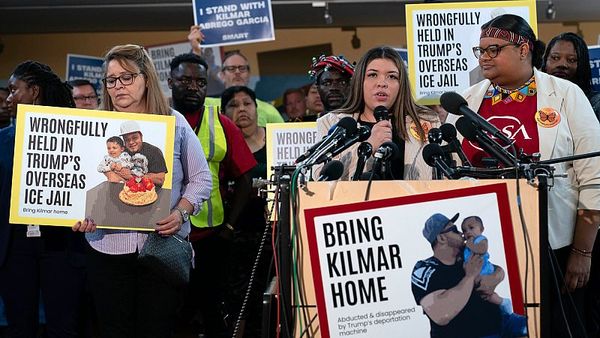
British-EU relations will probably get worse over the next two years because “the narcissistic politics of self-preservation” will continue to prevail in the UK, according to a former British envoy to Brussels.
Sir Ivan Rogers, who served as Britain’s ambassador to the EU until he quit in 2017 over Brexit, forecast that the Northern Ireland protocol dispute would remain “a crucial impediment to any improvement in the UK-EU relationship” for the rest of the British parliamentary and European Commission terms, which are both due to end in 2024.
In a speech prepared for the European University Institute in Florence, Rogers describes the UK government as “dishonest and dismal”. He also takes aim at ministers and former Brexit negotiators, who he claims are increasingly arguing that their project risks failing because “true Brexit has not been properly tried”, in an “uncanny echo of the language of revolutionary ultra-leftists during the cold war” in relation to the Soviet Union.
Badly weakened by a confidence vote, Boris Johnson is expected to table legislation next week that would override parts of the Northern Ireland protocol, an integral part of the Brexit withdrawal agreement the prime minister signed with the EU less than three years ago. The EU has warned this could create an economically damaging trade war, and is expected to retaliate with tariffs on British goods.
In the wide-ranging speech to be given on Thursday, Rogers says: “With Northern Ireland as the dominant issue, relations will probably continue to deteriorate rather than improve in the next two years. To tell the dismal truth, this might actually suit both parties – at least in terms of short-term political positioning. Even if it results in a trade war none of us needs or can really afford.”
The former ambassador urges both sides to find common ground in the face of a brutal war in Europe, rising authoritarian powers and persistent inflation. The alternative, he said, was to “live for years with a ‘frozen conflict’” between the EU and UK, with only isolated pockets of cooperation.
He expects Johnson to battle on, “trying harder to appease the forces” on the right wing of the Conservative party, “who are the likeliest to have another go at decapitating him”.
Rogers was the UK’s ambassador to the EU from 2013-17. After a series of top jobs at the Treasury and Downing Street, he negotiated David Cameron’s EU special status deal in 2016, but quit when politicians and officials who disliked his warnings about the complexity of Brexit began briefing against him.
In a characteristic no-holds-barred passage, he says that “the emptiness, the incompetence, the chicanery, the charlatanry, the egregious bad faith in trumpeting and marketing deals as huge triumphs” from the UK side made it easy for European elites not to think seriously about the “British question”.
He argues that is a mistake, although he finds it hard to imagine the EU stance changing.
Rogers has argued that the Northern Ireland protocol and “thin” EU-UK trade deal are unlikely to last long. Nor does he think Britain will rejoin the EU, which he argues “would be inconceivable for any political party with aspirations to win in the UK”.
He cautions the EU against undervaluing Britain as a military power, arguing that the bloc’s goal of “defence strategic autonomy” will be unviable in the foreseeable future. The UK, he adds, will “remain core to European autonomous capability”, especially if a future White House administration is less willing to commit resources to preserving European liberty.
Despite his bleak view of current relations, the former ambassador says he is optimistic that “a quite deep, effective EU-UK relationship” can be forged in the future. He argues the two sides should pursue agreements on mobility for UK-EU citizens, managing asylum seekers, defence procurement, science, as well as cooperation on security, climate finance and sub-Saharan Africa.
However, he does not see this positive agenda emerging in the short term: “Let’s not delude ourselves: it will continue to be bumpy, conflictual, tortuous. It may well get rougher in the coming months, essentially because of the narcissistic politics of self-preservation which will continue to dominate in the UK.”







